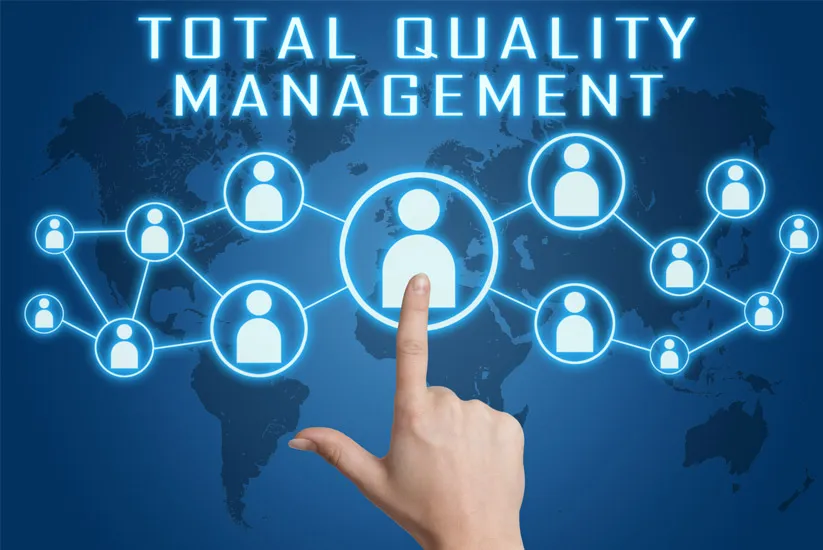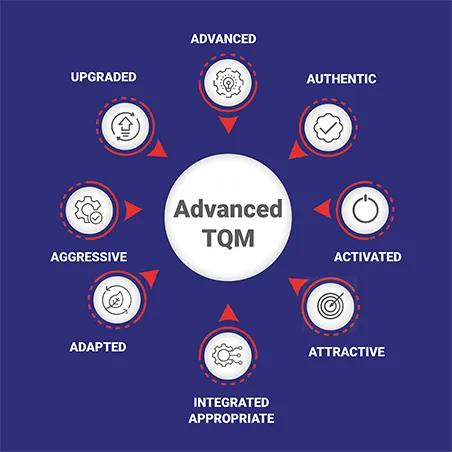
The Role of Analytics in Quality Management
December 16, 2021
How to Get Your Analytics Implementation Right
January 5, 2022What Should a TQM Workshop for the 21st Century Include?
Companies that practice TQM are often great brand ambassadors of the concept. Through constant assessment of existing business operations and the corresponding development and deployment of customer-focused, quality-oriented business strategies, they can offer attractive products and services that perfectly meet customer needs.
With the assistance of qualified, capable, and engaged people, these enterprises are able to develop an organisational culture focused on quality and stand a better chance of securing future business growth with continuous breakthrough improvement. While there are many success stories across the globe, including India, not every organisation that embarks on the TQM journey realizes full potential benefits.
The need for a TQM workshop
As a structured approach focused on customer satisfaction, TQM empowers every member of the organisation to inculcate a culture of and participate in continuous improvement and contribute towards enhancing the processes they use and the products and services they deliver. But despite being so critical to the long-term success of any business, accomplishing TQM is not a cakewalk.
Deploying (and sustaining) TQM can be a long and arduous process, given the exhaustive quality criteria that need to be met and the efforts that have to be put towards enabling substantive performance improvement via the implementation of the appropriate principles, concepts, and techniques.
Since achieving success with TQM is not just about implementing a handful of quality-related policies and procedures, it is imperative to learn new concepts and methods on a continuous basis. TQM workshop is a great way to ensure the intended learning objectives are achieved. Implementation of the learnings will ensure results are attained – within planned timelines and budget. The workshop can aid in guiding and coordinating work in an organisation for sustained TQM initiatives – with particular reference to Deming Prize requirements.
Top Elements of a TQM workshop
If you want to achieve long-term TQM success through customer satisfaction, you need to train your resources on core TQM principles, vehicles, and tools & methods and teach them how they can use an integrated approach for building quality into all aspects of the organisation.
Here’s looking at the top 7 elements of any TQM workshop for the 21st century:
- Clear objectives: When planning for a TQM workshop, you must be clear about the objectives of your workshop. Make sure to curate the workshop in such a way that enables participants to get a detailed understanding of TQM principles, concepts, and techniques. Educate them about the role of the TQM coordinator, and how they can interface with the top management for TQM promotion. Also, make sure they understand the need for effective coordination of TQM promotion activities throughout the organisation and the role infrastructure development and communication plays for effective promotion.
- Deep focus: The TQM workshop you build needs to be able to empower participants to develop the required knowledge and skills on TQM. This includes Daily Work Management, Policy Management, problem-solving, and Quality in upstream processes such as Sales and Marketing, Product and Process Design, continuous quality improvement, as well as facilitating TQM in their respective companies/functions.
- Comprehensive topics: While designing the workshop, you must include comprehensive topics across quality assurance and quality improvement. Make sure to educate participants on the basic behavioral principles for QA as well as on the procedure for quality management and improvement. Include theory sessions as well as case studies on evaluation of defects, inspections, and customer claims and train them on the different levels of quality. May include an experience sharing session by a Deming Prize-winning company for enhanced results.
- A trusted method: Opting for a time-tested and trusted method for training participants in the TQM workshop is just as critical. To ensure each participant understands key TQM concepts, you need to include a combination of lectures, case studies, and group discussions in your TQM workshop. All these need to be conducted by quality management professionals from the industry. Also, make sure that participants spend at least 50% of their time in the workshop in group activities.
- The right facilitators: The success of your TQM workshop depends largely on the trainers and facilitators you choose. If the wrong people are selected for the job, the implementation of TQM will most likely be delayed, while also overshooting budgets.
- The right participants: When choosing participants for the TQM workshop, it is important to focus on executives who are involved in the coordination of various aspects of TQM initiatives in the organisation. These can either include people who are in the process of implementing or planning to implement TQM initiatives. this statement is not clear.
- A robust schedule: The TQM workshop you conduct needs to follow a robust schedule. Make sure to have a workshop spread across a couple of days, with 8-10 hours of high-intensity work each day. Also, instead of sticking to a rigid schedule, adapt to your participants’ unique characteristics, supplement or add to the course as necessary, and customize the schedule and length of the presentation for different audiences and purposes.
Training a workforce in TQM requires detailed preparation and planning, and conducting a workshop is a great way to educate participants on core TQM concepts and principles. A well-planned carefully curated TQM workshop that includes a complete demonstration of all relevant aspects of TQM along with recommendations for achieving quality excellence through continuous improvement can go a long way in getting your people to foster a continuous improvement mindset in everything they do.





